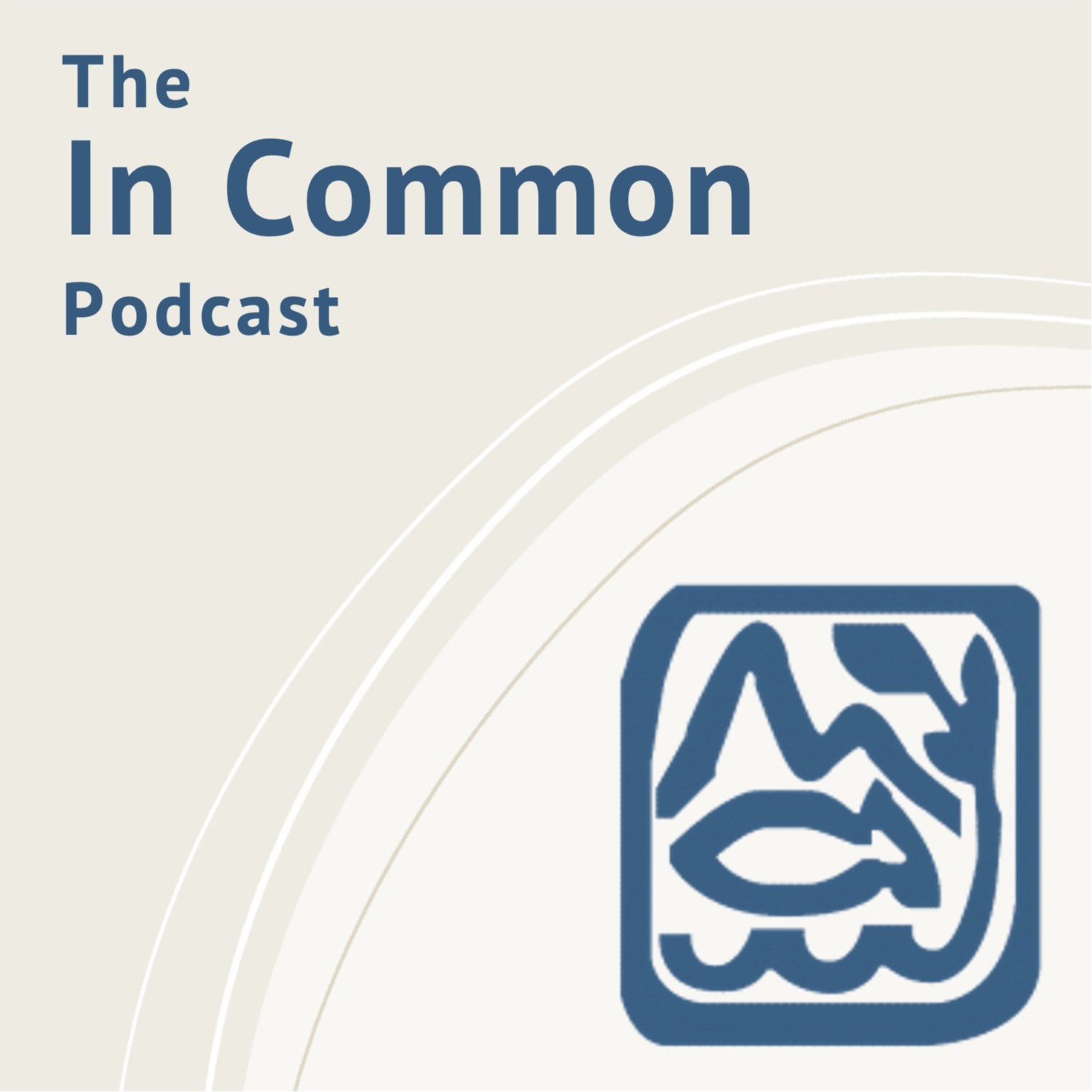
105.2K
Downloads
238
Episodes
In Common explores the connections between humans, their environment and each other through stories told by scholars and practitioners. In-depth interviews and methods webinars explore interdisciplinary and transdisciplinary work on commons governance, conservation and development, social-ecological resilience, and sustainability.
In Common explores the connections between humans, their environment and each other through stories told by scholars and practitioners. In-depth interviews and methods webinars explore interdisciplinary and transdisciplinary work on commons governance, conservation and development, social-ecological resilience, and sustainability.
Episodes
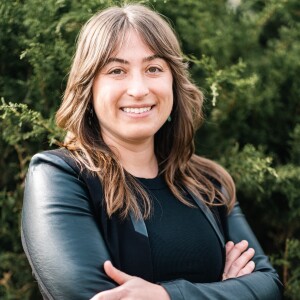
Monday Feb 26, 2024
FFM #3: Mapping coastal fisheries with Paige Roberts
Monday Feb 26, 2024
Monday Feb 26, 2024
This is the third episode in our Future Fisheries Management series, which we are running in collaboration with the Mercatus Center at George Mason University and the Center for Governance and Markets at the University of Pittsburgh.
In this episode, Michael speaks with Paige Roberts, a fisheries ecologist and geographic information systems, or GIS, expert who is currently an independent consultant after working for nine years for the One Earth Future Foundation, an organization that specializes in finding sustainable solutions in fragile and conflict-affected settings. During her time with One Earth, Paige was closely involved with Project Badweyn in the country of Somalia. Through this project Paige and her colleagues created a free online tool to map out Somali coastal resources and fishing activities to help a range af actors better understand interactions between human activities and the environment. Michael and Paige discuss this project as well as efforts of of the One Earth Future Foundation to promote the sustainability of coastal fisheries through a co-management approach. The conversation concludes with a discussion of Paige’s next steps since leaving the One Earth Foundation.
References:
A summary of Project Badweyn: https://oneearthfuture.org/en/secure-fisheries/project-badweyn-mapping-somali-coastal-resources-0
Paige describing Project Badweyn: https://www.youtube.com/watch?v=UU2fCo6Y1JU
GIS resources that Paige shared after the interview:
Esri makes some of the most popular GIS software. It's a subscription service, but you can get a personal license for around $100 for a year, which gives you access to ArcGIS Pro Software, ArcGIS Online, and the self-paced online training which has a slew of training modules from beginner to advanced. The ArcGIS Pro software is fairly intuitive once you learn the basics of GIS.
For a free option, QGIS is an open-source GIS software with all the same capabilities as ArcGIS but in a slightly less intuitive interface. It's widely used so there are ample resources online including its own Training Manual. There are many other free resources online and a quick Google search can get you anything you need, from blogs to videos on beginning to advanced techniques and troubleshooting.
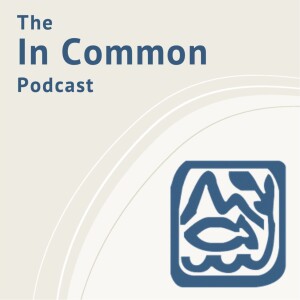
Monday Feb 12, 2024
122: Decolonizing Conservation with Mathew Mabele
Monday Feb 12, 2024
Monday Feb 12, 2024
In this episode, Divya speaks with Mathew Mabele. Mathew is a Conservation Social Scientist, currently appointed as a lecturer in the Department of Geography at the University of Dodoma in Tanzania. Mathew’s research uses the lenses of political ecology and decolonial thinking to shed light on the systemic structures and processes driving socio-ecological injustices. His work explicitly focuses on knowledge systems, power, and politics over framings of concepts such as biodiversity conservation, protected areas, human-wildlife coexistence, and sustainability.
Divya discusses Mathew’s work on decolonizing conservation research in Tanzania. This conversation was based on Mathew’s recent work highlighting the challenges of representation and the impacts of the global North funding on conservation research in the global South. Mathew's balanced perspective resonates throughout the discussion—not anti-global North, but rather, a call to recalibrate research practices for greater inclusivity and justice.
The conversation concludes with a discussion on Mathew’s other ongoing collaboration on the Convivial Conservation project, where he has collaborated with a large group of scholars to chart pathways for a socially just, democratic, and inclusive form of biodiversity governance.
References:
Mabele, M. B., Nnko, H., Mwanyoka, I., Kiwango, W. A., & Makupa, E. (2023). Inequalities in the production and dissemination of biodiversity conservation knowledge on Tanzania: A 50-year bibliometric analysis. Biological Conservation, 279, 109910.
Mabele, M. B., Kiwango, W. A., & Mwanyoka, I. (2023). Disrupting the epistemic empire is necessary for a decolonial ecology. Nature Ecology & Evolution, 1-1.
Kiwango, W. A., & Mabele, M. B. (2022). Why the convivial conservation vision needs complementing to be a viable alternative for conservation in the Global South. Conservation & Society, 20(2), 179-189.
Mabele, M. B., Krauss, J. E., & Kiwango, W. (2022). Going Back to the roots: Ubuntu and just conservation in southern Africa. Conserv. Soc. 20, 92.
Collins, Y. A., Macguire-Rajpaul, V., Krauss, J. E., Asiyanbi, A., Jiménez, A., Bukhi Mabele, M., & Alexander-Owen, M. (2021). Plotting the coloniality of conservation. Journal of Political Ecology.
Corbera, E., Maestre-Andrés, S., Collins, Y. A., Mabele, M. B., & Brockington, D. (2021). Decolonizing biodiversity conservation. Journal of Political Ecology, 28, 889.
Massarella, K., Nygren, A., Fletcher, R., Büscher, B., Kiwango, W. A., Komi, S., ... & Percequillo, A. R. (2021). Transformation beyond conservation: how critical social science can contribute to a radical new agenda in biodiversity conservation. Current Opinion in Environmental Sustainability, 49, 79-87.
Büscher, B., & Fletcher, R. (2019). Towards convivial conservation. Conservation & Society, 17(3), 283-296.
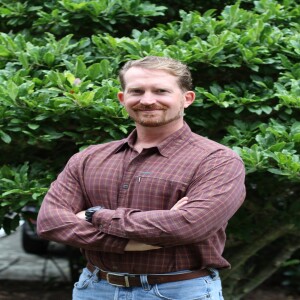
Monday Jan 22, 2024
FFM #2: Reality-based fisheries policy with Bubba Cook
Monday Jan 22, 2024
Monday Jan 22, 2024
This is the second in the Future Fisheries Management series that we are producing in collaboration with the Mercatus Center at George Mason University and the Center for Governance and Markets at the University of Pittsburgh.
In this episode, Michael speaks with Bubba Cook, the Western and Central Pacific Tuna Programme Manager at the World Wildlife Fund, or WWF. Bubba’s career has included multiple phases. He obtained his law degree from Lewis and Clark Law School, working for the U.S. National Marine Fisheries Service in Alaska where he led a team in the implementation of of a catch share, also known as an individual transferable quota, program for the North Pacific crab fishery made famous by the TV show “Deadliest Catch.”
Bubba later joined WWf’s Arctic Programme to support fisheries conservation and management efforts across the Bering Sea from the Russian Far East to Alaska’s remote indigenous communities. In 2010, he joined the U.S. Peace Corps and servedin Fiji, where he supported several grassroots marine conservation projects over two years. Since 2012, Bubba has worked as the Western and Central Pacific Tuna Programme Manager for WWF out of Suva, Fiji, and Wellington, New Zealand, where he focuses on improving tuna fisheries management at a national and regional level in the Western and Central Pacific Ocean through policy improvements, market tools, and technological innovation.
Michael and Bubba discuss the lessons that Bubba has learned at each step along the way, and Michael asks him about the recent WTO fishing subsidies agreement that were a central focus of the workshop where they met.
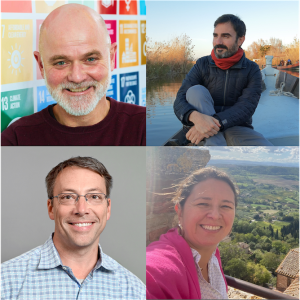
Sunday Dec 31, 2023
Sunday Dec 31, 2023
In our final episode of 2023, Michael speaks with the editors of the International Journal of the Commons, which In Common has worked with for the past few years, producing podcast episodes based on articles published there.
Today’s guests are Frank van Laerhoven, Associate Professor at the Copernicus Institute of Sustainable Development at Utrecht University in the Netherlands, Mike Schoon, Associate Professor in the School of Sustainability at Arizona State University, Sergio Villamayor-Tomas, Ramon y Cajal Senior Researcher at the Institute of Environmental Science and Technology in Barcelona, Spain, and the journal's new editor-in-chief, Maria Claudia lopez, Associate Professor in the Department of Community Sustainability at Michigan State University.
Michael and the IJC editors talk about the journal and its role in the commons research community, and how the editors think about issues such as journal impact factor, one of many metrics that seem to be exerting more and more influence over our professional lives and affecting how we think about ourselves individually and collectively. Frank describes his view of the journal as a means for community development, applying the same principles of the commons and commoning that many in the commons community use in their research activities. This is also how we view the role of the In Common Podcast. Thank you for listening to us this year. Feel free to reach out with feedback and suggestions for what you like like to hear moving forward. See you in 2024!
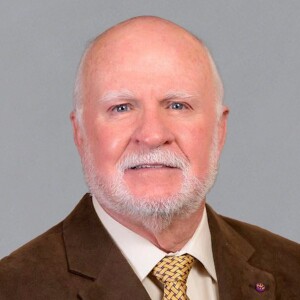
Monday Dec 11, 2023
120: Land use, agriculture and the anthropocene with Billie Turner II
Monday Dec 11, 2023
Monday Dec 11, 2023
In this episode, Michael speaks with Billie Turner II, Regents Professor at the School of Sustainability at Arizona State University. Billie holds other positions as well, including Distinguished Global Futures Scientist at the Julie Ann Wrigley Global Futures Laboratory, also at Arizona State, member of the US National Academy of Sciences, and Associate Editor of the Proceedings of the National Academy of Sciences. Billie is a geographer and human-environmental scientist who studies land use and land cover change from prehistory to the present, and he has also contributed to our understanding of the determinants of social vulnerability and resilience. He works on deforestation, primarily in Mexico and Central America, and urban design in arid environments, especially the American Southwest.
Michael and Billie talk about two topics that Billie has written on, one being the reasons for the decline of a lowland Maya population around the years 800 to 1000, and the other being a long-standing debate between Thomas Malthus, who predicted that exponential population growth would inevitably outstrip linear growth in resources, and Esther Boserup, who argued that population-induced scarcity would motivate the necessary innovations to avoid systematic decline.
The interview concludes with a discussion of the book that Billie recently wrote, entitled: The Anthropocene, 101 Questions and Answers for Understanding the Human Impact on the Global Environment.
References:
Turner, B. L., and Jeremy A. Sabloff. 2012. “Classic Period Collapse of the Central Maya Lowlands: Insights about Human–environment Relationships for Sustainability.” Proceedings of the National Academy of Sciences 109 (35): 13908–14. https://doi.org/10.1073/pnas.1210106109.
Turner, B. L., and A. M. Ali. 1996. “Induced Intensification: Agricultural Change in Bangladesh with Implications for Malthus and Boserup.” Proceedings of the National Academy of Sciences of the United States of America 93 (25): 14984–91. https://doi.org/10.1073/pnas.93.25.14984.
Turner, B. L. 2022. The Anthropocene: 101 Questions and Answers for Understanding the Human Impact on the Global Environment. Agenda Publishing.
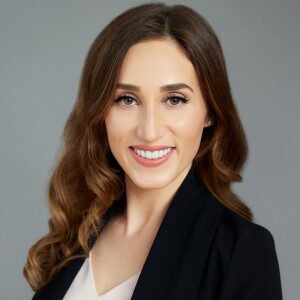
Monday Dec 04, 2023
119: The Duty to Consult with Victoria A. Bikowski
Monday Dec 04, 2023
Monday Dec 04, 2023
In this episode, Michael speaks with Victoria Bikowski, a PhD student in the Department of Politics at York University in Toronto, Canada, and a consultant for Suslop Incorporated, a consulting firm that specializes in sustainability and community development. The conversation primarily focuses on the main topic of Victoria’s PhD dissertation: the duty to consult, or the obligation held by provincial governments and the Federal Canadian Government to consult with indigenous peoples about the potential consequences of government-supported projects, such as natural resource development. Victoria’s primary question that she is addressing is about the effects that consultation processes have on the uncertainties that each of the groups involved faces. Victoria also talks about her role as a consultant for Suslop Incorporated, and how she navigates her dual role as an academic and a practitioner.
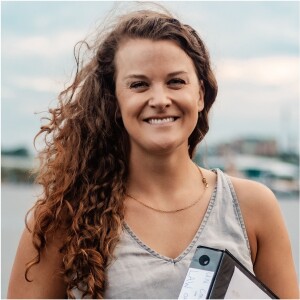
Monday Nov 20, 2023
FFM #1: Ocean policy with Elizabeth Mendenhall
Monday Nov 20, 2023
Monday Nov 20, 2023
This is the first episode in a new series on the Future of Fisheries Management (FFM), conducted in collaboration with the Mercatus Center at George Mason University as well as the Center for Governance and Markets at the University of Pittsburgh.
In this episode, Michael speaks with Elizabeth Mendenhall, Associate Professor of Marine Affairs at the University of Rhode Island. Elizabeth is an expert in international marine policy with a particular emphasis on the United Nations (UN) Convention on the Law of the Sea, or UNCLOS. During the conversation, she speaks with Michael about the origins of this policy, the elements of it that she admires, and the promise and challenges it presents for helping states deal with their shared environmental problems. At the end of the interview Michael and Elizabeth discuss the workshop on fisheries policy where they met, co-hosted by the Mercatus Center at George Mason University as well as the Center for Governance and Markets at the University of Pittsburgh.
Elizabeth’s website: http://www.elizabeth-mendenhall.com/
References:
Mendenhall, Elizabeth. 2023. “Making the Most of What We Already Have: Activating UNCLOS to Combat Marine Plastic Pollution.” Marine Policy 155 (September): 105786.
Mendenhall, Elizabeth, and Kahlil Hassanali. 2023. “The BBNJ Agreement and Liability.” Marine Policy 150 (April): 105549.
Mendenhall, Elizabeth, Cullen Hendrix, Elizabeth Nyman, Paige M. Roberts, John Robison Hoopes, James R. Watson, Vicky W. Y. Lam, and U. Rashid Sumaila. 2020. “Climate Change Increases the Risk of Fisheries Conflict.” Marine Policy 117 (July): 103954.
Mendenhall, Elizabeth, Rachel Tiller, and Elizabeth Nyman. 2023. “The Ship Has Reached the Shore: The Final Session of the ‘Biodiversity Beyond National Jurisdiction’ Negotiations.” Marine Policy 155 (105686): 105686.
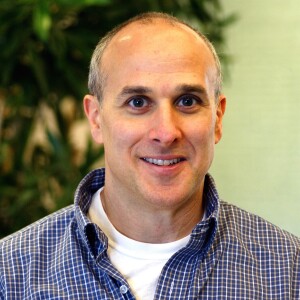
Monday Nov 13, 2023
Monday Nov 13, 2023
In this episode, Michael speaks with Eric Klopfer, the chair of the department of Comparative Media Studies and Writing at the Massachusetts Institute of Technology, or MIT. At MIT Eric is also the director of the Scheller Teacher Education program as well as the Education Arcade.
Eric is a leader in the space of game design for education. He recently co-authored a book on the subject: Resonant Games, Design Principles for Learning Games that Connect Hearts, Minds and the Everyday. During the conversation, Eric discusses games as an example of experiential learning and emphasizes the importance of combining a game exercise with reflection, which is where the real learning happens through what Eric calls an action-reflection cycle.
Eric and Michael also discuss the game that originally led Michael to speak to Eric: a simulation of the tragedy of the commons in a fishery, which Eric led the development of. In addition to this episode, Michael discusses his implementations of this game in a recent blog post on the In Common website. You can find more about this game and Eric's work at this web address:
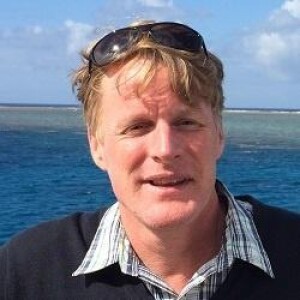
Friday Oct 27, 2023
Insight Episode #54: Dan Holland
Friday Oct 27, 2023
Friday Oct 27, 2023
This Insight Episode comes from full episode 111 with Dan Holland.
Dan is a senior scientist at the Northwest Fisheries Science Center within the US National Oceanic and Atmospheric Administration, more commonly known as NOAA. Dan is also an affiliate professor at the University of Washington, Chair of the Science and Statistical Committee of the Pacific Fishery Management Council, an associate editor of Marine Resource Economics, and a former President of the International Institute for Fisheries Economics and Trade (IIFET).
Dan talks with Michael about his work on risk pools, a form of collective-based management where fishers combine their quotas for species with the potential to constrain overall catch. They touch upon the pros and cons of this system as well as a few examples.
Dan’s website: https://www.fisheries.noaa.gov/contact/dan-s-holland-phd
References:
Holland, Daniel S. 2018. “Collective Rights–Based Fishery Management: A Path to Ecosystem-Based Fishery Management.” Annual Review of Resource Economics 10 (1): 469–85. https://doi.org/10.1146/annurev-resource-100517-023110.
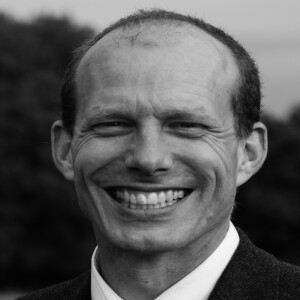
Saturday Oct 07, 2023
Insight Episode #53: Dan Brockington on the myth of fortress conservation
Saturday Oct 07, 2023
Saturday Oct 07, 2023
This insight episode comes from full episode ninety-four with Dan Brockington.
Dan is a professor and director of the Sheffield Institute for International Development at the University of Sheffield. Michael and Stefan talk with Dan about his book, Fortress Conservation: The Preservation of the Mkomazi Game Reserve, Tanzania, specifically looking at the myths that help to sustain nature reserves and the positive and negative implications of fortress conservation.
References:
Brockington, D. 2002. Fortress Conservation: The Preservation of the Mkomazi Game Reserve, Tanzania. Indiana University Press.
Brockington, D., Duffy, R., and Igoe, J. 2008. Nature Unbound: Conservation, Capitalism and the Future of Protected Areas. Routledge.
Brockington, D. 2009. Celebrity and the Environment: Fame, Wealth and Power in Conservation. Bloomsbury Publishing.
